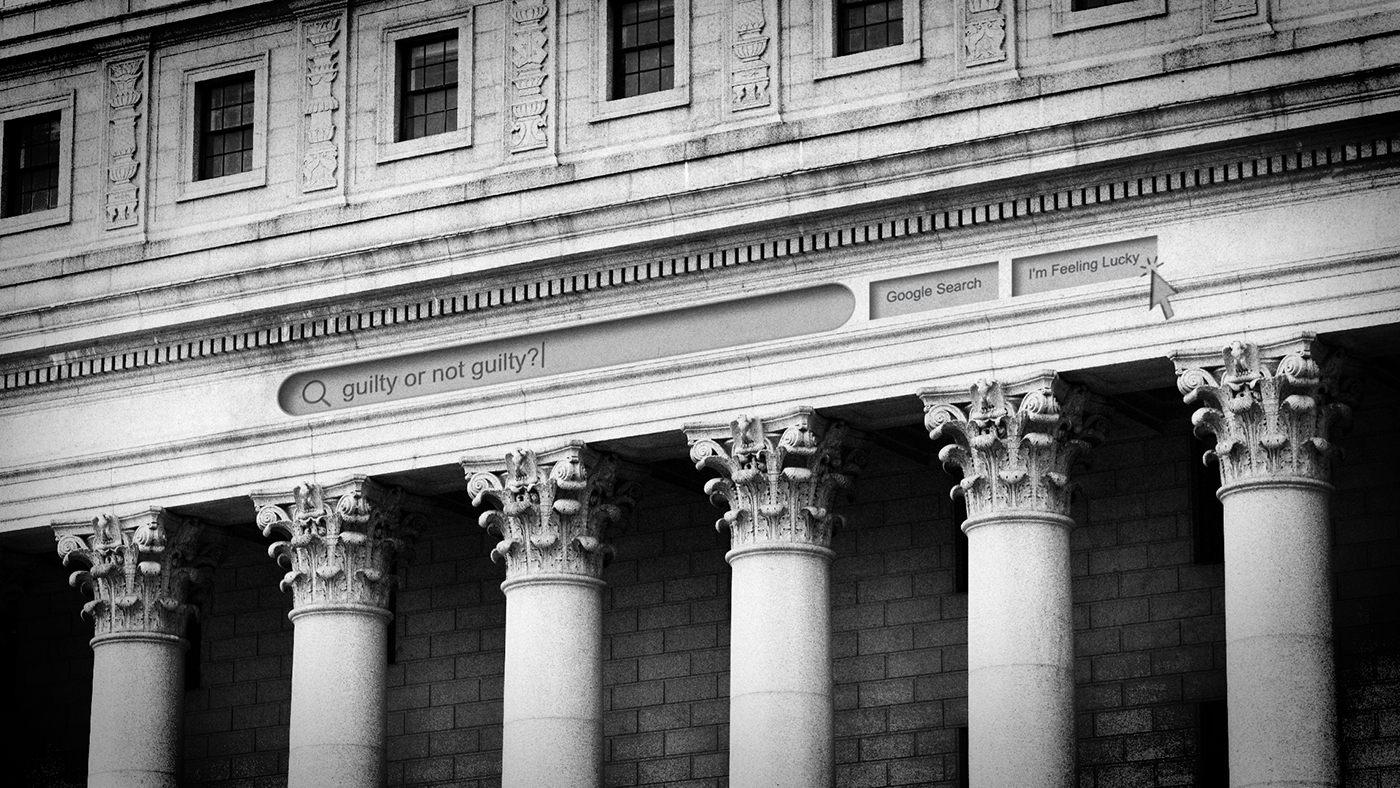Is Google's looming monopoly trial a watershed moment for Big Tech?
The federal government's first major antitrust action in decades could set a major precedent for internet giants


A free daily email with the biggest news stories of the day – and the best features from TheWeek.com
You are now subscribed
Your newsletter sign-up was successful
Given the ubiquitous profile that Google — and its evolved corporate umbrella entity Alphabet — enjoys across multiple industries today, it can be easy to forget that the company whose very name has become synonymous with the act of looking things up online has only been around since 1998. In that time, Google has gone from being a search engine to the search engine, helping in large part to define the internet as we experience it in our daily lives, both consciously and not. Its smart assistants are in our homes; its phones are in our pockets; its cars are driving themselves down our streets; and at the center of it all is Google's algorithmically fueled search engine — the beating heart of a corporation with a net worth larger than many countries.
Three years ago, the Department of Justice began investigating whether Google's global search dominance was the result not simply of a stellar product, but of potentially criminal machinations. In 2020, the federal government alongside a number of state governments filed antitrust charges against the company, alleging that Google held an industry-wide monopoly bolstered by "implementing and enforcing a series of exclusionary agreements with distributors over at least the last decade." Though its genesis may have been a "scrappy startup" with an "innovative" method for internet searches, "that Google is long gone," prosecutors wrote, alleging the company had instead become a "monopoly gatekeeper" for digital spaces, overseeing "nearly 90 percent of all general-search-engine queries in the United States, and almost 95 percent of queries on mobile devices."
After years of legal wrangling and public posturing, Google and the Justice Department will finally meet in court next week for the start of the "first monopoly trial of the modern internet era," according to The New York Times. Expectations are high, and the stakes — for Google, for the government, and for the internet age as a whole — are even higher.
The Week
Escape your echo chamber. Get the facts behind the news, plus analysis from multiple perspectives.

Sign up for The Week's Free Newsletters
From our morning news briefing to a weekly Good News Newsletter, get the best of The Week delivered directly to your inbox.
From our morning news briefing to a weekly Good News Newsletter, get the best of The Week delivered directly to your inbox.
What the commentators said
Even after a federal judge narrowed the parameters of the government's case earlier this summer, simply bringing Google to trial at all "is a win for the Department of Justice's antitrust unit," Foreign Times reported, noting that the group "has taken a tougher enforcement stance, particularly towards Big Tech" in recent years. And even though the narrowed scope of the allegations against Google represents a "significant victory" for the company, "the strongest claims against Google remain, so Google still remains at risk of a significant antitrust ruling against it," Boston College law professor David Olson told The Washington Post.
A ruling against Google in this case could mean the company would "be forced to restructure in some way, and it could be hit with enormous fines and a prohibition on search distribution deals," The New York Times predicted. The result would be "fewer users, deflated profits and perhaps even limits on how Google is able to innovate with new technologies like artificial intelligence." Google needs to use "everything at its disposal to fend off competition right now," agreed Gizmodo's Thomas Germain said, after the Justice Department filed a second antitrust suit against the company this year for its "monopolizing digital advertising technologies." But, continued Germain, that effort to maintain market dominance is "exactly what [Google] needs to avoid doing with the DOJ breathing down its neck."
While many have been quick to point out similarities between the Justice Department's last major antitrust tech case against Microsoft in 1998 and Google's current legal straits, The New York Times notes that the ground has shifted since then, with today's crop of internet juggernauts having "woven themselves into people's lives to an even greater degree" to the point where a ruling against Google "could have broad ripple effects" across the entire industry.
What next?
Next week's trial is expected to last 10 weeks, with Judge Amit P. Mehta — an Obama administration appointee — set to issue the final ruling. In addition to the other Justice Department case against Google's ad services, the company also faces "two other lawsuits from states that accused it of abusing monopolies in ad tech and for blocking competition in its Google Play app store," according to the Times.
A free daily email with the biggest news stories of the day – and the best features from TheWeek.com
Rafi Schwartz has worked as a politics writer at The Week since 2022, where he covers elections, Congress and the White House. He was previously a contributing writer with Mic focusing largely on politics, a senior writer with Splinter News, a staff writer for Fusion's news lab, and the managing editor of Heeb Magazine, a Jewish life and culture publication. Rafi's work has appeared in Rolling Stone, GOOD and The Forward, among others.
